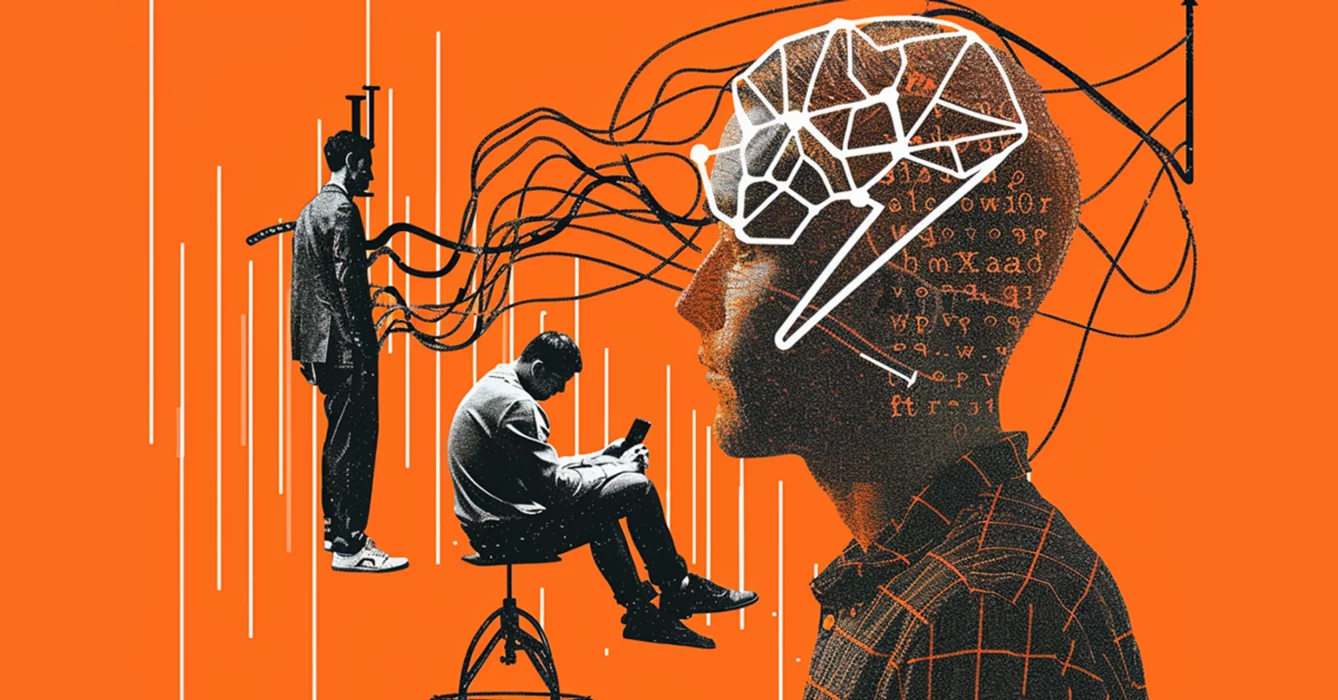
Challenger AI invites AI startups to its acceleration program. Who can participate and what will the teams gain?
Mentorship, investors, and new opportunities. Read more about the benefits of participating in an accelerator.
The second cohort of Challenger AI Accelerator 2.0 has successfully wrapped up in Ukraine. A total of 120 startups applied, and after a rigorous selection process—including application reviews, one-on-one pitching sessions with relevant mentors, and a two-day bootcamp—12 Ukrainian and international teams were chosen to join the accelerator.
Over the course of four months, the teams participated in workshops, refined their solutions with guidance from personal mentors, pitched their products to both international and Ukrainian investors, and shared knowledge and experiences with each other. They capped off the program by presenting their solutions at Demo Day, which took place on May 10 in Kyiv.
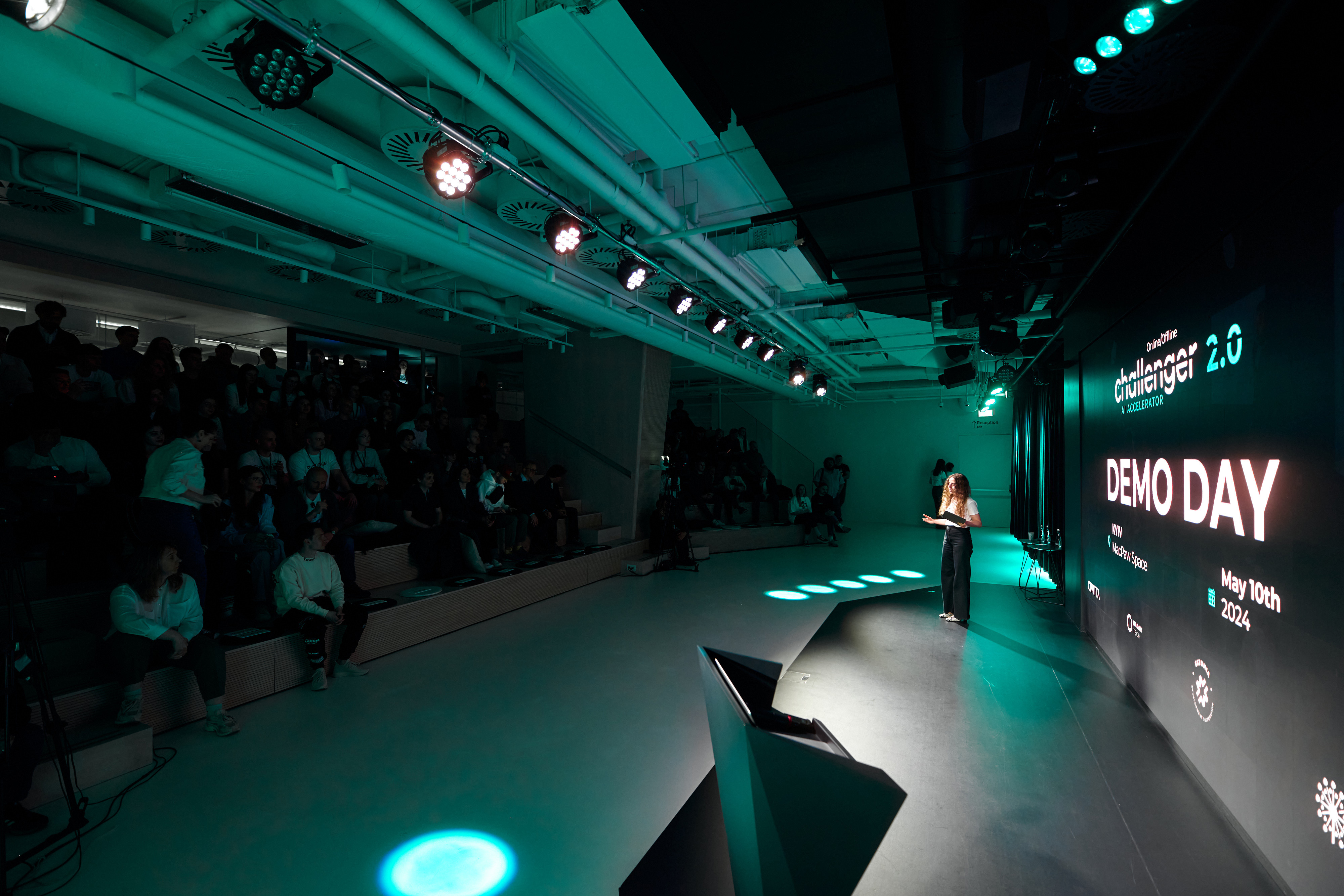
Why it’s important for startups to join accelerators, how they drive growth, and the less obvious lessons from such programs — insights from organizers and participants of Challenger AI Accelerator 2.0.
Channeling expertise into their own programs
The accelerator program was launched by Civitta, an international consulting firm that helps implement innovative solutions for government institutions, corporations, and startups. The company operates in more than 20 countries and specializes in securing funding for innovative projects and developing strategies. It also supports small and medium-sized enterprises and runs initiatives that help build the startup ecosystem.
Over more than ten years, Civitta has implemented over 50 accelerator programs across various industries in Estonia, Slovakia, and Armenia. Among the alumni of these programs are highly successful unicorn companies such as Bolt. In total, alumni have raised over €2 billion in investments.
After years of successful experience, in 2019 the company decided to launch its own accelerator — Challenger Accelerator. The team has run ten programs across different sectors, supporting startups developing green innovations, creative industries, urban solutions, and initiatives empowering women working on their own tech projects.
In Ukraine, a new branch was created — Challenger AI Accelerator. The program targets startups leveraging artificial intelligence and is implemented in partnership with the innovative company Radar Tech, with financial support from the Estonian Ministry of Foreign Affairs and WNISEF. This allows the program to operate on an equity-free model, meaning participants don’t pay to join and the program doesn’t take any stake in their business.
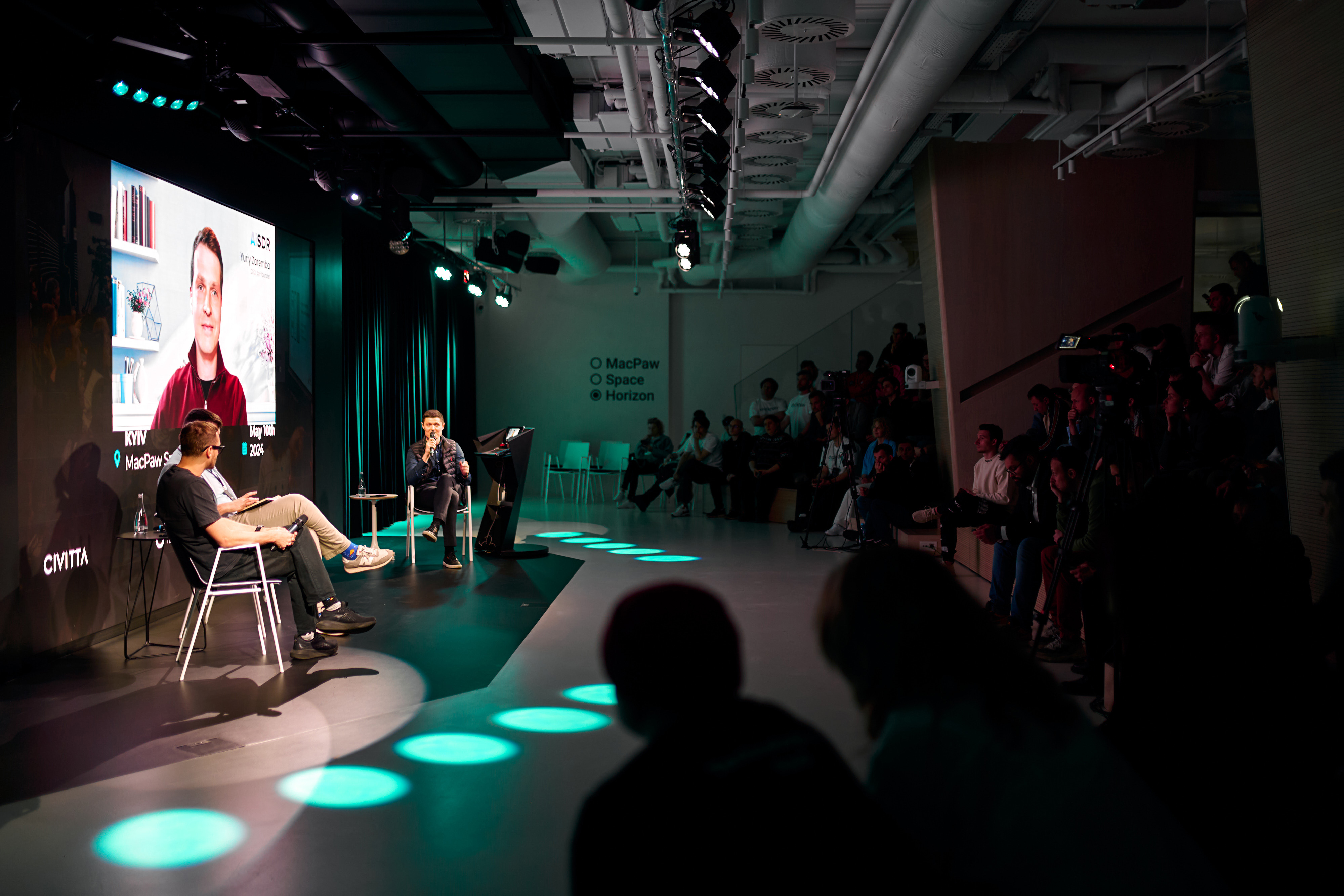
Challenger AI Accelerator consists of four main components:
1. Training program and workshops. The program includes five modules: building a business model, product development, company and team management, scaling to new markets, and increasing investment attractiveness.
2. Mentorship support. For each startup, the organizers assign mentors — both technology and business experts — who have relevant experience and expertise.
3. Investor networking. Startups participate in Startup Roasts and pitch their solutions to both international and Ukrainian investors to refine their pitch decks and learn about fundraising prospects.
4. Meetings with successful founders. The accelerator team invites founders who have achieved success on the international stage. Participants gain insights from those who have already navigated market expansion and fundraising rounds.
This is already the second run of the Challenger AI Accelerator program. The first batch was recruited in 2022, but due to the full-scale invasion, it could only be completed in spring 2023. Among the program’s successful alumni are GetPin, which raised $400,000 from Czech Presto Ventures in November 2023, and Beholder Earth, which secured nearly $1 million in investments this spring. In addition, they received €600,000 through a startup pitching session at Latitude59, a technology and entrepreneurship conference held in Estonia.

Development, Scaling, and Attracting New Investments
The acceleration program consists of five modules, each covering a key aspect that all founders face during startup growth.
Module 1: Business Model and Product-Market Fit
In this module, founders learn how to shape their business model and understand the uniqueness of their product. Early-stage founders need to identify mechanisms that will help develop and scale the startup in the future.
For example, one of this year’s sessions featured Farid Singh — an entrepreneur, innovator, and product manager with over a decade of experience mentoring more than 35 startups across Europe, the Baltics, and Scandinavia. Product development insights were also shared by Karen Burns, founder of Fyma AI, and Kaspar Korjus, founder of Pactum AI.
Module 2: Product Development
Participants explore how AI technologies can enhance their product and create a competitive market advantage. A major focus is on scalability through AI. Experts assisting participants included Volodymyr Karpiv, R&D Director at SoftServe.
This year, the accelerator even included teams that don’t yet have an AI component in their product but want to develop in this direction. For these teams, organizers selected mentors with the relevant expertise to strengthen their existing products.
Module 3: Company and Team Management
Key aspects of this module include financial and legal management.
Early-stage founders need to learn how to manage their project budgets and maintain P&L reports, prepare a working financial model, and have the necessary financial documents, forecasts, and metrics for attracting investments. Aliona Mysko, founder of the financial planning startup Fuelfinance, assists with this.
Natalia Limonova, founder of the interactive math platform GIOS for students and teachers (established in 2020), noted that this module became a test of her project’s strategic direction.
Legal issues are addressed by lawyers and investors, covering essential startup registrations and areas of investor focus during funding rounds. This year, teams were advised by representatives from Sparring, a company specializing in legal matters for innovative tech businesses.
Module 4: Scaling to New Markets
This module includes content on scaling, sales, and market entry, developed in response to feedback from last year’s participants. The startups this year are more mature, making scaling a critical topic.
The main goals are to help teams understand the specifics of different markets, how to introduce their product, and how to stand out from competitors.
A highlight of this batch was an in-person panel discussion on international market experience with four representatives from Ukrainian startups. Two were alumni of last year’s program — Beholder Earth and GetPin — while the other two, Petcube and Lalafo, are actively operating in foreign markets.
Module 5: Increasing Investment Attractiveness and Fundraising
The final module focuses on attracting external financing. Civitta has extensive in-house expertise in funding.
“We help secure both small (€50,000) and large (€2.5 million) grants for Ukrainian and European startups. For example, Releaf participated in Challenger Sustainability, and we later helped them obtain a €2.5 million EIC Accelerator grant,” says Olena Shershun, program manager of the accelerator and Associate Partner at Civitta.
A strong emphasis is placed on connecting startups with investors. Participants of Challenger AI 2.0 received feedback during Startup Roasts from funds such as Fiedler Capital (Hungary), Tenity Nordics (Switzerland), u.ventures (Ukraine), Vesna VC (Luxembourg), and Amalfi (Estonia), as well as Roosh Ventures (Ukraine), ZAKA VC (UK), Tera Ventures (Estonia), Look AI Ventures (Czech Republic), FIRSTPICK (Lithuania), and Presto Ventures (Czech Republic).

Mentorship Support
The educational program is only part of a startup’s success. Each startup is paired with a personal lead mentor and a technical mentor who support participants throughout the accelerator.
With lead mentors, participants set development plans and goals for the acceleration program. For example, the founders of Post-Call Analytics, a solution automating contact center processes at Rythmex, aimed to onboard their first client and validate the business model.
While the lead mentor focuses on business challenges, technical mentors guide participants through technical challenges. These experts explain how to strengthen a product’s competitiveness by implementing new tools or improving existing ones.
In addition to personal mentorship, startups can book a 30-minute one-to-one consultation with an expert from any module. During these sessions, participants discuss project-specific questions, such as strategies to increase sales.
Acceleration as an Opportunity for Rapid Growth
Acceleration programs allow founders to develop their projects much faster than under normal circumstances. However, organizers note that results aren’t always immediate—they often become evident after six months to a year of active development.
Examples from last year include AI startup Beholder Earth, launched in 2021. After participating in the accelerator, the team joined an NVIDIA-backed program (a Challenger AI partner) and this year raised $940,000 from the European fund InnoEnergy.
Another example is Softbrik, which was invited to the Intel OneAPI Program for Startups after representatives discovered the team and their solution at Startup Roast.
A key component of the program is networking, allowing early-stage founders to meet investors and entrepreneurs they might otherwise struggle to access.
We haven’t made as much progress in the past two years as we have now
Among this year’s Challenger AI Accelerator participants are:
- Natalia Limonova, founder of the interactive math platform GIOS for students and teachers
- Denis Samofan and Mykyta Sinchura, co-founders of Post-Call Analytics at Rythmex
- Enrique Prado, co-founder of the Brazilian AI assistant Inspira Legal, winner of the Web Summit Pitch Competition 2023
Mentorship Match for Scaling and Fundraising
Natalia Limonova, founder of GIOS, shares: We launched an AI-powered platform for learning mathematics and developing critical thinking in 2020. Today, we have over 150,000 registered users and collaborate with 140 schools, offering both individual lessons and school programs. The mentor pairing helps founders scale their projects and prepare for investment rounds by providing targeted guidance on both business and technical fronts.
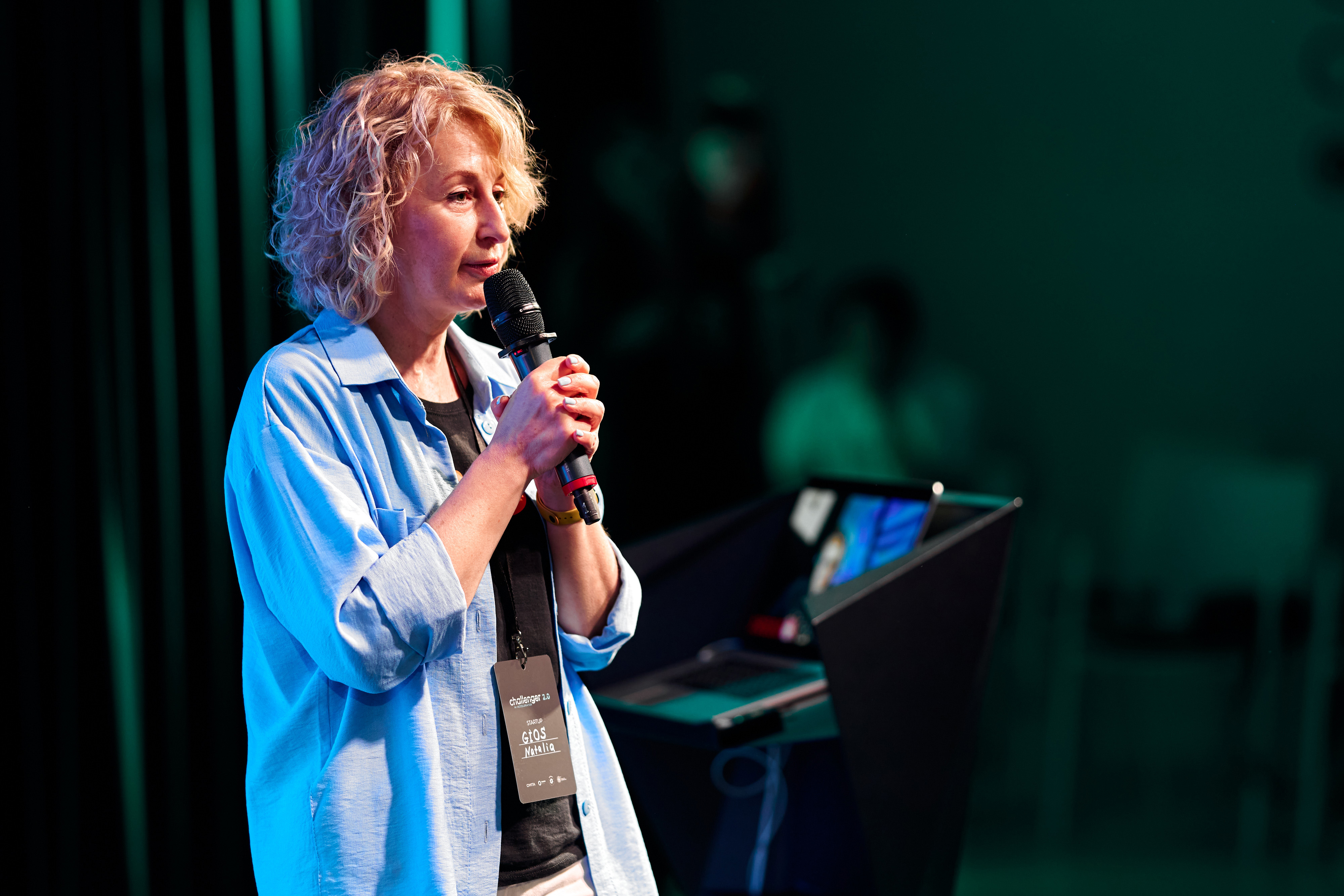
Our mission is to build a better future for children by providing accessible, engaging, and interactive learning for millions of students around the world. That’s why our main goal right now is to scale the project and enter new markets. When we began expanding into other countries, we realized that we couldn’t follow the same approach everywhere. One of our goals in joining the accelerator was to gain experience in scaling a business. We’re also integrating AI tools into the platform to make learning more interactive and personalized for children. Challenger’s expertise has been instrumental in this process. We were lucky to have Karin as our mentor. She is a partner at an Estonian venture fund and previously ran an EdTech startup. As we are preparing for fundraising, she has been invaluable in helping us organize our approach and get ready to communicate effectively with investors. She also taught us how to set intermediate SMART goals and celebrate achievements, which brings inspiration and optimism to the team.
Better Understanding of Customers, Pivot, and New Clients
Denys Samofan and Mykyta Sinchura, co-founders of Rythmex, also shared the results of their work.
Denys: We’ve been developing our project since 2022. Initially, our service was focused on B2C clients. However, when we joined the accelerator, we decided to revisit our concept and target audience. That’s when we realized that our project has much more potential in working with B2B clients.
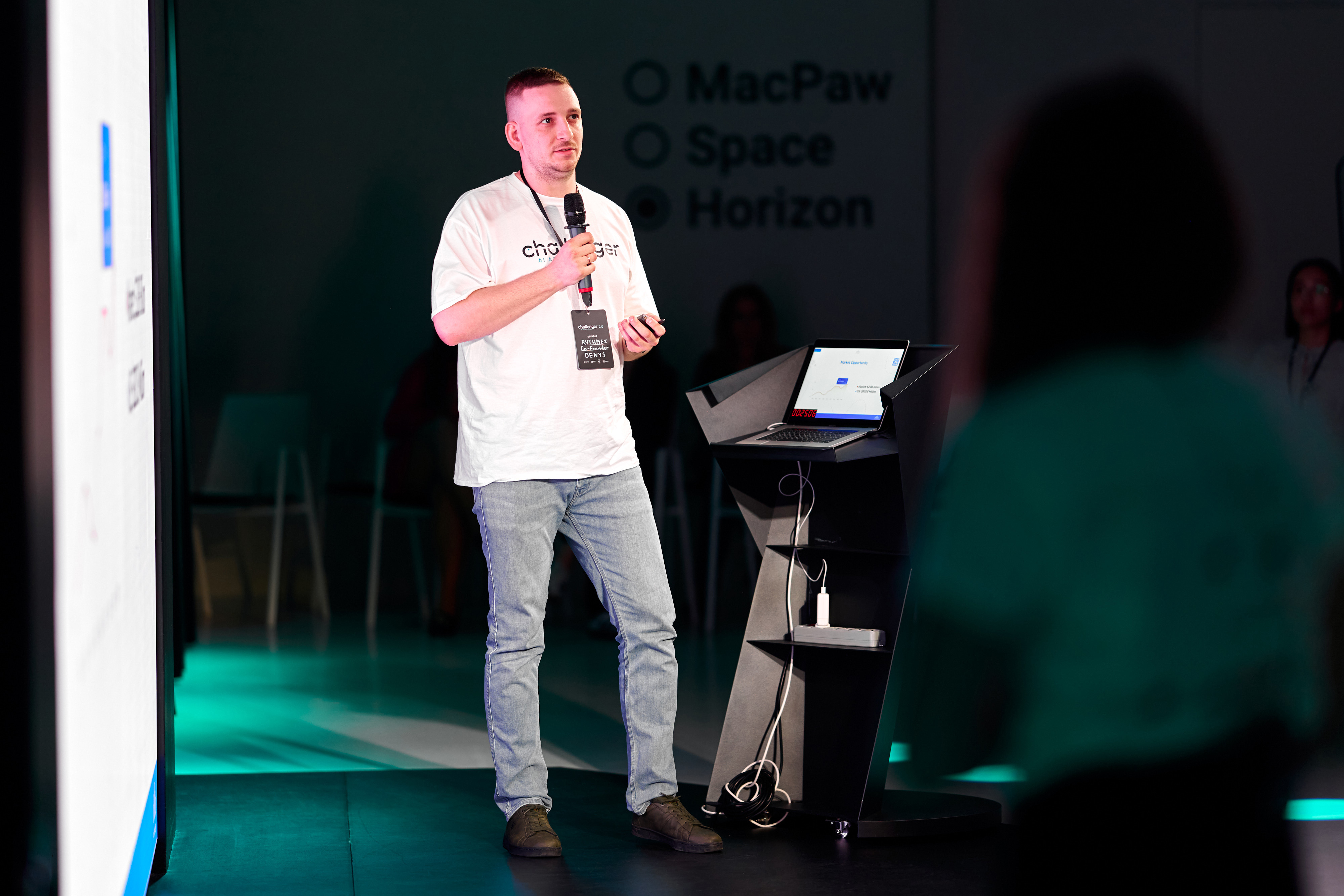
With our mentor, we set a goal to secure at least one pilot client. However, thanks to the program’s experts and the work we’ve done, we now have a packed schedule of calls with potential clients for the next two weeks. Even before joining the program, we tracked basic financial metrics like revenue, server costs, and other expenses. The rest, however, we didn’t analyze. Now, we track MRR and have revamped our metrics table to appeal to potential investors.
Mykyta: We did a lot of homework after every lecture. For early-stage startups like ours, it’s crucial to make the most of every opportunity. The most inspiring session for me was the meeting with pitch coach Den Renwick—it was the cherry on top of all sessions. Den gave us detailed feedback on our pitch, and we made many adjustments as a result. The key takeaway: before starting an accelerator program, prepare a checklist of questions you want to resolve and actively use all available opportunities.
The Advantages of AI Tools, Finance, and Networking
Enrique Prado, co-founder of Inspira Legal, shares his experience: Our startup operates in the legal niche. We realized that the entire database accumulated over the course of our work allows us to implement powerful AI models into the product. Therefore, we focused on features like reading, summarizing, and analyzing legal texts. In such a heavily bureaucratized field, the ability of AI to process large volumes of text can significantly increase the productivity of lawyers.

Sessions with our technical mentor, Serhiy Shelpyuk, demonstrated the importance and advantages of our product. Training the model on real legal cases ensures high-quality processing of legal terminology and context. And, of course, the power of networking. It is very important to exchange ideas, experiences, and challenges with other founders.
Don’t miss the opportunity to improve your startup
An acceleration program is an excellent chance for early-stage startups to receive mentorship and learn from the mistakes of others. For example, the Rythmex team accomplished in four months during the accelerator what they hadn’t achieved in two years of their project’s existence—and, most importantly, secured their first inquiries from potential clients.
Additionally, the accelerator provides access to a tech community, making it easier to find partners, specialists, and even reach potential investors. The results of Challenger AI Accelerator alumni are proof of this.

The Challenger team is already planning the launch of the third cohort — Challenger AI Accelerator 3.0. Enrollment for this program begins in the fall. So, if you have an AI product that you want to improve, gain expert advice, and receive consultations from leading investors and key players in the tech market, follow Challenger Accelerator updates on social media and on their website.

